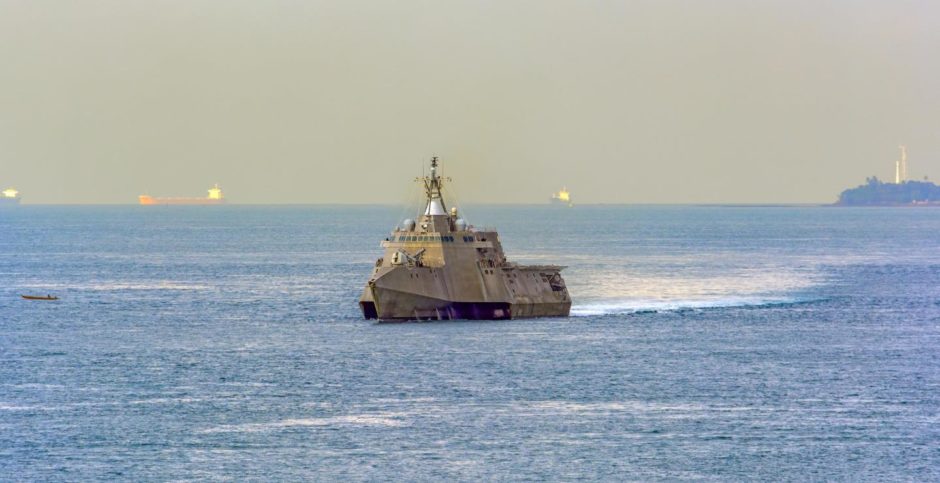
Indonesia has sent a naval ship to tail a Chinese survey vessel that has been operating close to Harbour Energy’s Tuna Block in the Natuna Sea within Indonesia’s exclusive economic zone (EEZ).
Benar News reported that US aircraft carrier USS Carl Vinson, passed as close as 50 nautical miles to the same Chinese ship, the Haiyang Dizhi 10, last Saturday, according to ship-tracking data in the South China Sea.
“On Monday, the Indonesian navy deployed the KRI Bontang (907) to the same area, ship tracking records show, suggesting it was closely following the Chinese vessel’s movement, close to an important oil and gas field. Both vessels were still in the area on Wednesday. The Haiyang Dizhi has been operating there since late August, about 90 nautical miles north of Indonesia’s Natuna Islands,” reported Benar News.
The Indonesian navy and the Maritime Security Agency, also known as Bakamla, was quoted in Indonesian media as saying there has been a regular presence of Chinese coastguard ships around the Tuna Block, where Harbour Energy is carrying out appraisal drilling, and the Haiyang Dizhi 10 is operating.
Since 31 August, the Chinese survey ship has been carrying out a survey near the Noble Drilling deep-water Noble Clyde Boudreaux, added Benar News. The rig is on a two-well contract, which started in early July and is expected to last 120 days at the Tuna block.
Apart from the survey ship, Indonesian newspaper Kompas quoted local fishermen as saying that they sighted at least six Chinese ships, including a 7,500 ton destroyer – the Kunming (172) – in the North Natuna Sea on Monday.
Energy Voice previously reported that the Chinese coast guard had been interfering with Harbour Energy’s ongoing drilling campaign at its Tuna block in the Natuna Sea offshore Indonesia. Significantly, the appraisal drilling is funded by Russia’s state-backed Zarubezhneft and the incident underscored the fact that Moscow’s energy interests in the South China Sea are increasingly being threatened by China.
In May, the Russian company acquired a 50% share in the Tuna block that is being appraised, and is operated by Premier Oil, now a Harbour Company. As part of its farm-in deal, the Russian company will carry Premier Oil for its share of the two-well campaign
In recent years, Vietnam, Philippines, and Malaysia, have all come under pressure to end joint development projects with foreign energy companies operating in areas of the South China Sea claimed by Beijing.
Harbour’s drilling has attracted the attention of Beijing as the Tuna discovery sits in an area also claimed by China through its sweeping claim to most of the South China Sea within its U-shaped ‘nine-dash line’, which is not recognised by its neighbours or internationally by the United Nations Convention on the Law of the Sea. The Tuna PSC lies about 10 nautical miles from the Indonesia-Vietnam maritime border.
